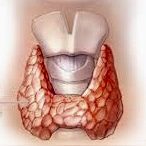November 14th 2017, is world Diabetes day and here are some important facts to help raise awareness of this highly prevalent disease.

This year’s theme is “Women and Diabetes” – diabetes affects up to 199 million women worldwide and 2 out of 5 women with Diabetes are of reproductive age.
Uncontrolled Diabetes can lead to poor pregnancy outcomes especially if not properly controlled prior to conception, therefore preconception management of Diabetes is extremely important to prevent mother/child mortality and morbidity.
.
Facts:
-
According to international Diabetes Foundation, Diabetes is the ninth leading cause of death in women globally (about 2.1 million deaths per year)
-
1 in 3 people in developed nations have Pre-diabetes (at risk of developing Diabetes), and of this group, 9 out of 10 don’t know they have it!!More than 1 in 11 adults aged 20 years and older have diabetes, and for those above 65 years the umber rises to 1 in 4!!

-
Studies have shown that eating healthy, being active (at least 150 mins a week) and at least 7% weight loss decreases the risk of being diabetic by up to 67%.
-
A child has a 1 in 7 chance of developing diabetes if one parent was diagnosed before age 50. If the parent was diagnosed after age 50, the child has a 1 in 13 chance
-
Diabetes is the leading cause of kidney failure, Non-traumatic amputations, and is one of the common causes of blindness in the US.
-
In the US 25% of calories come from sugar, drinking one or two sugary drinks a day increases your risk of developing type 2 diabetes by up to 26%.
-
Every 21 seconds someone is diagnosed with Diabetes.
-
Diabetes kills 1.5 million people every year worldwide and that number is expected to double by 2030.
-
According to a new study, ordering off of a menu that displays calorie counts may encourage healthier choices and overall less calories than ordering from menus without calorie display!
-
According to IDF, Women with type 2 diabetes are almost 10 times more likely to have coronary heart disease than women without the condition.

